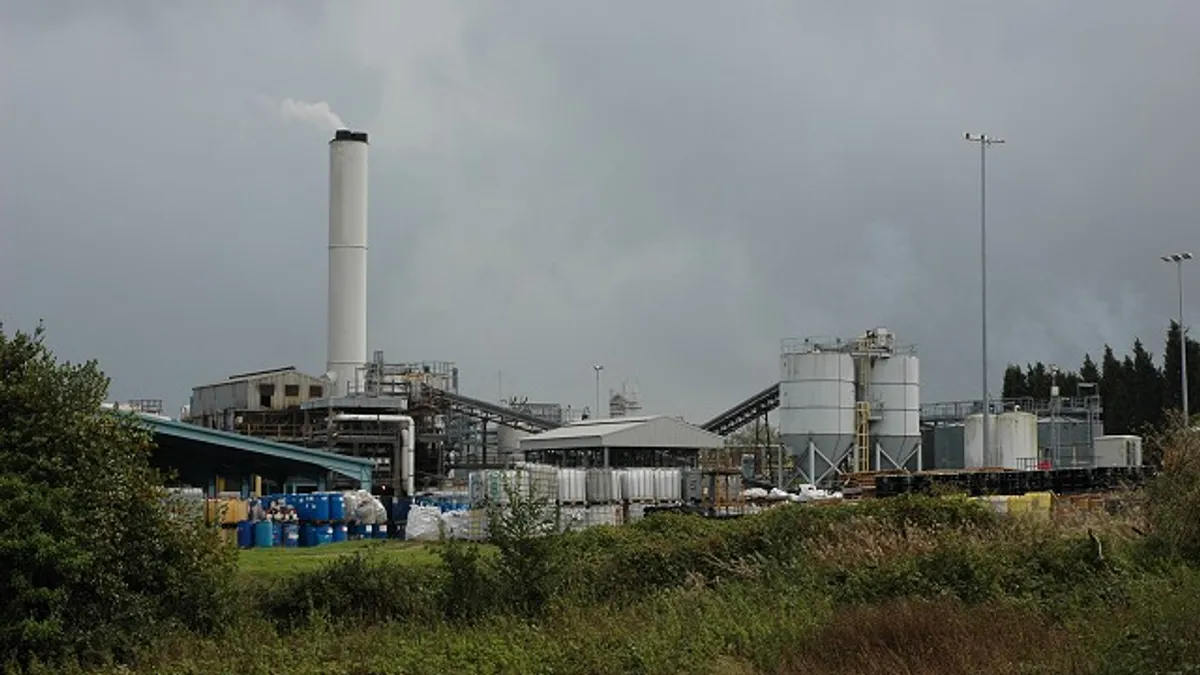Dive Brief:
- A report released by Zero Waste Europe points to serious violations of emissions guidelines at several incineration facilities across Europe:
- Lafarge Montcada I Reixac cement plant in Barcelona, Spain
- Lafarge cement plant in Trbovlje, Slovenia
- Ivry waste incinerator in Paris, France
- Dargavel waste incinerator in Scotland, United Kingdom
- Incinerators of Bavaria, Germany
- The report claims that the facilities' production of hazardous air pollutants is higher than safety limits recommended by the World Health Organization (WHO); the facilities are relying on techniques that surpass emission limits that WHO considers environmentally and epidemiologically safe; and the facilities are monitoring their own air pollution rather than deferring this function to an independent entity.
- Among highlighted details at specific facilities are the approved but widely opposed activities at Spain's Lafarge Montcada I Reixac plant, namely the use of sludge, bone and meat meal, and plastics as fuel. The Lafarge cement plant in Slovenia has yielded documented complaints of toxic emissions, odors and for not having environmental permits.
Dive Insight:
Historically, Zero Waste Europe has called for the implementation of policies that prioritize waste prevention, reuse, and recycling, including the redesign and implementation of improved extended producer responsibility programs, which require producers to work to eliminate the waste they generate.
Zero Waste Europe’s most recent findings punctuate environmentalists’ objections to incineration of waste and appear in alignment with accumulating evidence of the processes’ negative impact on the climate.
The new report is an extension of the organization’s investigative work on the solid waste front, which has focused on the potential risks of incineration, and on educating policy makers on solid waste management’s role in curbing climate change.










